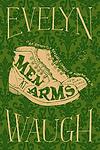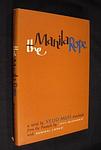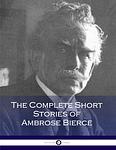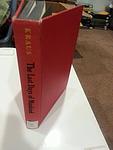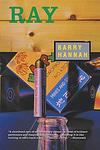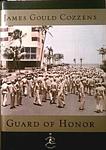The Greatest "Satire, War" Books of All Time
Click to learn how this list is calculated.
This list represents a comprehensive and trusted collection of the greatest books. Developed through a specialized algorithm, it brings together 300 'best of' book lists to form a definitive guide to the world's most acclaimed books. For those interested in how these books are chosen, additional details can be found on the rankings page.
Genres
Satire is a genre of literature that uses humor, irony, and exaggeration to criticize and ridicule human vices, follies, and shortcomings. It is a form of social commentary that aims to expose the flaws and absurdities of society, politics, and culture. Satirical books often employ sarcasm, wit, and parody to challenge the status quo and provoke thought and reflection in readers. Satire can be both entertaining and thought-provoking, and it has been used throughout history as a powerful tool for social and political critique.
Countries
Date Range
Reading Statistics
Click the button below to see how many of these books you've read!
Download
If you're interested in downloading this list as a CSV file for use in a spreadsheet application, you can easily do so by clicking the button below. Please note that to ensure a manageable file size and faster download, the CSV will include details for only the first 500 books.
Download-
1. Catch-22 by Joseph Heller
The book is a satirical critique of military bureaucracy and the illogical nature of war, set during World War II. The story follows a U.S. Army Air Forces B-25 bombardier stationed in Italy, who is trying to maintain his sanity while fulfilling his service requirements so that he can go home. The novel explores the absurdity of war and military life through the experiences of the protagonist, who discovers that a bureaucratic rule, the "Catch-22", makes it impossible for him to escape his dangerous situation. The more he tries to avoid his military assignments, the deeper he gets sucked into the irrational world of military rule.
-
2. Slaughterhouse-Five by Kurt Vonnegut
The novel follows the life of Billy Pilgrim, a World War II veteran who has become "unstuck in time," experiencing his life events out of order. This includes his experiences as a prisoner of war in Dresden during the Allies' firebombing, his post-war life as a successful optometrist, his abduction by aliens from the planet Tralfamadore, and his eventual death. The book is a critique of war and a demonstration of the destructive nature of time, with a nonlinear narrative that reflects the chaos and unpredictability of life.
-
3. The Tin Drum by Günter Grass
The novel tells the story of Oskar Matzerath, a boy who decides on his third birthday that he will stop growing and remain a three-year-old forever. Oskar is gifted with a tin drum by his mother, which he uses to express his emotions and thoughts. Living in Danzig during the rise of Nazi Germany, Oskar's refusal to grow is a form of protest against the adult world. The book is a blend of magical realism and historical fiction, providing a unique perspective on the horrors of World War II and the post-war era in Germany.
-
4. Journey to the End of The Night by Louis-Ferdinand Céline
The novel is a semi-autobiographical work that explores the harsh realities of life through the cynical and disillusioned eyes of the protagonist. The narrative follows his experiences from the trenches of World War I, through the African jungles, to the streets of America and the slums of Paris, showcasing the horrors of war, colonialism, and the dark side of human nature. The protagonist's journey is marked by his struggle with despair, loneliness, and the absurdity of existence, offering a bleak yet profound commentary on the human condition.
-
5. Gravity's Rainbow by Thomas Pynchon
Set during the end of World War II, the novel follows Tyrone Slothrop, a lieutenant in the U.S. Army, as he tries to uncover the truth behind a mysterious device, the "Schwarzgerät", that the Germans are using in their V-2 rockets. The narrative is complex and multi-layered, filled with a vast array of characters and subplots, all connected by various themes such as paranoia, technology, and the destructive nature of war. The book is known for its encyclopedic nature and its challenging, postmodernist style.
-
6. The Good Soldier Svejk by Jaroslav Hašek
"The Good Soldier Svejk" is a satirical novel set during World War I, following the story of a Czech soldier in the Austro-Hungarian army. Svejk, the protagonist, is a simple-minded, good-natured man who is frequently arrested for bungling jobs due to his apparent idiocy. Despite his constant run-ins with authority, Svejk manages to maintain his cheerful disposition and even takes advantage of his perceived stupidity to manipulate the system. The book offers a humorous and critical perspective on the absurdity of war and the incompetence of military bureaucracy.
-
7. Waiting for the Barbarians by J M Coetzee
The novel is set in a small frontier town of an unnamed empire, where the magistrate lives a life of civil service and relative peace. His world is disrupted when the Empire declares a state of emergency due to rumors of barbarian uprising. The magistrate becomes a critic of the Empire's brutal and inhumane methods of dealing with the perceived threat, which leads to his arrest and torture. As he tries to understand his role in the vast political machinery, he also grapples with questions of power, justice, and humanity.
-
8. The Sympathizer by Viet Thanh Nguyen
"The Sympathizer" is a gripping spy novel set during the Vietnam War. The protagonist is a half-French, half-Vietnamese army captain who is a communist double agent. After the Fall of Saigon, he moves to America with other South Vietnamese refugees and struggles to reconcile his dual loyalties as he continues to spy on his fellow countrymen in exile. The novel explores themes of identity, war, and politics, while providing a unique perspective on the Vietnam War and its aftermath.
-
9. Odessa Stories by Isaac Babel
"Odessa Stories" is a collection of short stories set in the bustling city of Odessa, Ukraine, during the early 20th century. Through vivid and colorful characters, the book explores the vibrant and diverse Jewish community of Odessa, capturing their struggles, dreams, and everyday lives. With a blend of humor, tragedy, and satire, the stories paint a rich portrait of a city and its people, offering a unique glimpse into a bygone era.
-
10. Men At Arms by Evelyn Waugh
"Men At Arms" is a satirical novel set during World War II, following the misadventures of a group of British soldiers. The story revolves around the absurdities and incompetence within the military hierarchy, as well as the clash between the old-fashioned traditions and the modern realities of war. Through dark humor and witty dialogue, the book explores themes of heroism, loyalty, and the futility of war, painting a vivid picture of the chaotic and often farcical nature of armed conflict.
-
11. Billy Lynn's Long Halftime Walk: A Novel by Ben Fountain
The novel follows Billy Lynn, a 19-year-old soldier, who, along with his fellow soldiers in Bravo Squad, becomes a hero after a harrowing Iraq battle and is brought home temporarily for a victory tour. During the tour, they're honored at a Dallas Cowboys game, which exposes the commercialization and shallow appreciation of their sacrifices. Amidst the celebration, Billy grapples with his understanding of heroism, patriotism, family, and the stark contrast between the realities of war and America's perceptions.
-
12. Halftime by Martin Walser
"Halftime" is a thought-provoking novel that explores the life of a successful businessman who, in the midst of his midlife crisis, begins to question the meaning and purpose of his life. As he grapples with his own mortality and the emptiness of his achievements, he embarks on a journey of self-discovery, seeking to reconcile his past and present and find a new path forward. The book delves deep into the human psyche, offering a profound exploration of existential crises, personal transformation, and the quest for authenticity.
-
13. The Manila Rope by Veijo Meri
"The Manila Rope" is a novel that explores the experiences of a group of Finnish soldiers during World War II. The narrative follows the soldiers as they are tasked with transporting a massive, cumbersome coil of rope across challenging terrains, a task that becomes increasingly absurd and futile as the story progresses. The book uses this premise to delve into the harsh realities and absurdities of war, highlighting the human capacity for resilience and camaraderie in the face of adversity.
-
14. The Singapore Grip by J. G. Farrell
"The Singapore Grip" is a satirical historical novel set in Singapore during the Second World War. The story revolves around a British family who owns a successful trading company and their experiences as the Japanese invasion looms. The book explores themes such as colonialism, greed, love, and the fall of the British Empire, providing a critical and humorous commentary on the era's socio-political landscape.
-
15. A Fable by William Faulkner
This novel is a World War I allegory where a Christ-like figure emerges within a French regiment, sparking a mutiny. The figure, a corporal, persuades his squadron to not attack in the bloody conflict, leading to their court-martial and execution. The narrative explores themes of war, morality, and the human spirit, with the corporal's actions causing a ripple effect, impacting the lives of soldiers, officers, and even a Jesuit priest.
-
16. The Complete Short Stories Of Ambrose Bierce by Ambrose Bierce
"The Complete Short Stories of Ambrose Bierce" is a collection of gripping and thought-provoking tales that showcase the author's mastery of the short story form. Bierce's stories delve into the dark recesses of the human psyche, exploring themes of war, death, and the supernatural. With his sharp wit and incisive writing style, Bierce crafts narratives that are both entertaining and deeply unsettling, leaving readers pondering the complexities of the human condition long after they have finished reading.
-
17. The Last Days of Mankind by Karl Kraus
"The Last Days of Mankind" is a satirical play that provides a critical commentary on the socio-political climate during World War I. The narrative presents a stark portrayal of the absurdity of war and the destructive forces of propaganda, bureaucracy, and nationalism. The author uses a variety of literary techniques, including parody, satire, and direct quotes from contemporary sources, to highlight the folly and tragedy of war. The play is known for its unique style, rich language, and its profound critique of society and culture during a time of great upheaval and conflict.
-
18. Ray by Barry Hannah
"Ray" is a darkly comedic and deeply moving novel about a Vietnam War veteran and former pilot who is grappling with his past and his own self-destructive tendencies. The protagonist's candid, often rambling monologues reveal his struggles with alcoholism, his failed marriages, and his complicated relationships with women, as well as his reflections on life, death, and the human condition. Set in the American South, the novel is a raw and poignant exploration of a flawed man's search for meaning and redemption.
-
19. Advise and Consent by Allen Drury
This political novel delves into the world of U.S. Senate politics. The plot revolves around the contentious confirmation process of a controversial Secretary of State nominee, who is suspected of having communist sympathies. As the Senate battles over the nomination, the novel reveals the complex web of political maneuvering, personal secrets, and power struggles among the country's leaders. The story provides an insightful exploration of American politics, ethics, and the consequences of past actions.
-
20. Guard of Honor by James Gould Cozzens
"Guard of Honor" is a detailed and realistic portrayal of life in a World War II army air forces base. It revolves around the experiences of a disillusioned newspaperman, who is called back into service during World War II. The narrative delves into the complexities of military life, the intricate bureaucracy, racial tensions, and the moral dilemmas faced by those in positions of power during the war. The novel explores the themes of duty, honor, and the harsh realities of war.
Reading Statistics
Click the button below to see how many of these books you've read!
Download
If you're interested in downloading this list as a CSV file for use in a spreadsheet application, you can easily do so by clicking the button below. Please note that to ensure a manageable file size and faster download, the CSV will include details for only the first 500 books.
Download








